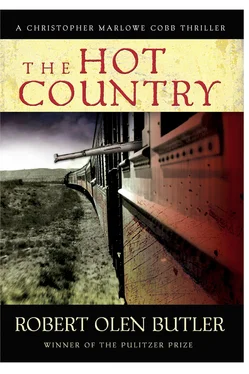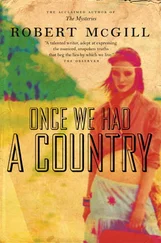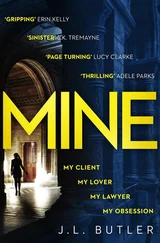Diego wasn’t clean. Never had been. He was smudged and he was ragged around the edges, but he always looked better than this place. He hadn’t prepared me for this.
His mother was probably not much past thirty but looked to be fifty. She was mixed dark, Aztec but with some evident Spanish blood in her from randy hacienda owners having their way with various generations of her grandmothers. She wore a faded green sleeveless dress. A brown scapular on a cord hung around her neck.
She lifted her round face to me — I could see Diego there — and she smiled. “You are good to my boy,” she said.
“He is a good boy,” I said.
And she straightened at this, lifted her eyebrows.
I felt Diego rustling next to me. I wondered if it was at my praise or at his mother’s resistance to it.
“He is a thief,” she said.
“He does what he needs to do,” I said.
And now she sank a little into herself, her eyebrows fell, her eyes went dark. Yes, she was thinking. And is that not my fault?
“He would have it another way,” I said. I looked at Diego, who startled me slightly in his face already being lifted to mine, as if it had been there all along, and he had that intense attention of his focused on me. I said, “Isn’t that right, Diego Cordero Medina y Espinoza?”
“Yes sir,” he said.
“I was married to his father,” his mother said.
I knew that from Diego’s two last names. Most couples among the urban poor of Mexico did not formally marry. The State required both civil and religious ceremonies, and the custom when they went through these formalities was for the children to take the surnames of both parents. But the formal marriages were too expensive for the poor. And when the man and woman didn’t marry, their children could take only the father’s name. Diego’s parents somehow managed to have the ceremony. If they had not, he would simply have been Diego Cordero Espinoza.
“I understand,” I said. “You both have done what you need to do.”
She smiled at me. “You will drink with us? Some pulque? And there is some fruit.”
“Yes,” I said, “thank you.” And I sat on the floor before her, and Diego sat beside me, and we ate figs and bananas, and the mother looked at her son when she served the figs and she said “These are stolen,” and I said nothing, but Diego stirred beside me and I knew he was looking at me and I thanked his mother for the fruit and then we drank pulque together, Diego and his mother and I. And though I knew I hated the stuff and though the air around me stank from the way of life in this place, I touched her tin cup and Diego’s and I drank, and the pulque tasted okay. The pulque tasted pretty damn good.
Diego’s mother rose when I rose to go and she held my offered hand with both of hers. I put my other hand on top and squeezed very gently. Though I expected him to get pissed at me for doing it, I said again to her, “You have a good boy. He will make you proud.”
I was happy to see not a single flicker of surprise in her face.
“Thank you,” she said.
Diego walked with me away from his house, and we stopped and faced each other. We both knew that tomorrow I would slip onto the train to follow Mensinger far up-country, and it was unclear where I would end up and when I might see Diego again. I put my hand inside my shirt, opened a flap of the money belt and I found a certain sort of coin by shape and heft. I pulled it out and bent down so I was eye-to-eye with Diego. I held up the coin between us.
His eyes went wide and I was feeling bad — more than bad, very uneasy — about maybe not seeing him again. I was glad to be doing this for him and for his brothers and sisters and for his singing mother, and I was very glad to see his eyes widen over a good thing on this day, for I wouldn’t soon forget the wideness of his eyes after he was nearly killed and after I ripped Krüger’s arm out of its socket. In my hand was an Indian Head Gold Eagle coin. I was looking at the Indian himself, in profile with war bonnet. I wanted Diego to see the Indian. I turned the coin, and the standing eagle on the other side, also in profile, made me think of the thing I told Gerhard and he told me. We are Americans. Together. But go far enough back and Americans have all come from somewhere else. And this kid before me had the heart of an American. The coin was 90 percent gold, worth ten bucks. Which would go a long way in Vera Cruz, Mexico.
“This is to stay away from the Germans while I’m gone,” I said.
He nodded, without ever letting his eyes shift from mine.
I offered him the coin.
He struggled a little with his face now, trying to keep his eyes dry and his mouth firm, but I had to look very closely to see it. He was a good kid. He put his two fingers on the top of the coin and we both held it for a very brief moment. Then he gently extracted the coin from my hand. “Thanks, boss,” he said.
And he turned and he was gone.
I knew what he meant. Just as briskly, and with just as much control of my feelings, I stood and I turned and I walked away.
It was mid-afternoon and there was much to do.
Bunky first and it was not till I was up the steps of his casa de huéspedes and heading for his door that I realized how I’d been trusting him till this moment. I did glance as I trotted past the Diligencias and I noticed he wasn’t there, but the alternative didn’t really register on me. Only now did I wonder if he was drunk again and I’d be in Dutch on the train tomorrow, trying to travel as myself or with no documentation. I knocked.
Bunky answered at once. “Enter.”
I went in. The room was heavy with the smell of sulphur and bromine. Bunky sat at his table. The tan, wooden Kodak developer box with the roller handles had been pushed away from him and he was hunched over the open passport, smoothing a page with his thumbs. He was coming through for me. He knew what was at stake now and he could do this.
“Just in time,” he said.
“Bunk, would you do me a favor?”
He looked up at me.
I said, “Keep a chair wedged under your doorknob when you’re in here.”
He straightened up, sat back.
“Are they after us too?” he asked.
“I wouldn’t be surprised.”
He nodded.
“And keep an eye on the kid,” I said. “Give him some things to do but keep him away from the Huns.”
“I’ll do the best I can.”
We looked at each other for a long moment. He knew and I knew, but I needed to say it. “You need to keep off the juice,” I said. “At least while I’m gone.”
The nod of assent he gave me was so minute I could barely see it from across the room. But it was more believable because of that.
He looked back down to the passport and took a cloth from beside him on the table, put his forefinger in it and began to wipe. I crossed the room and stood beside him. He was tracing the pasted outer edge of a photo of my face. Gerhard had vanished beneath me. I’d taken his place. I put a hand on the old man’s shoulder. “Thanks, Bunk.”
He nodded. “And what about you? Do you have a plan?”
“Follow him.”
“And?”
I shrugged. He waited. “Get the story,” I finally said.
“At least I know to put a chair against the door.”
“At least you know there is a door.”
He nodded. We both understood. Even covering a real war, everything is always new. But you know to find the high ground or the top of a building or a place beside the artillery unit or along the lines or with a certain officer at general headquarters. You have people to walk up to and ask how it is and what’s next. You can simply go out and dodge bullets and say how that felt. It’s a drama and each set is a little different, but you know the theater. You know your way around. Everything before me now was improvisation. And this had better be the last I thought about that. I had to anticipate some things, but only my next move or two. There were too many unknowns, and as for any good reporter on any story, you keep your mind wide open for surprises.
Читать дальше












